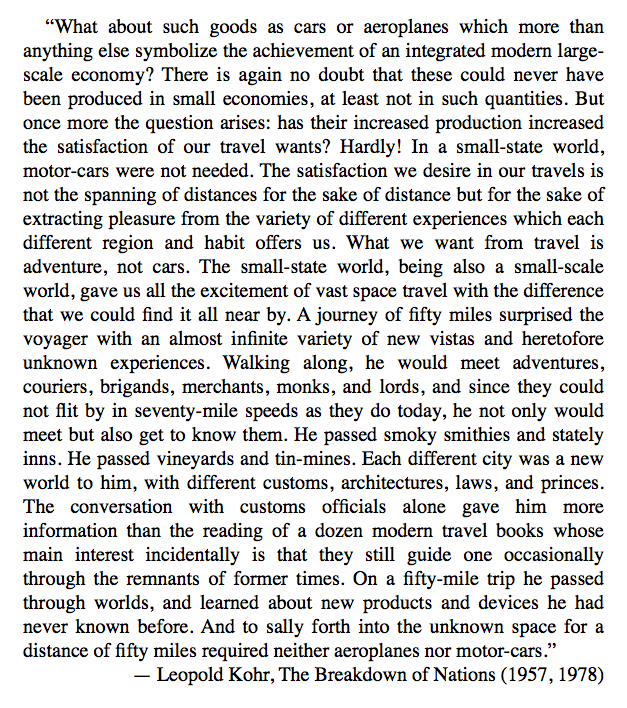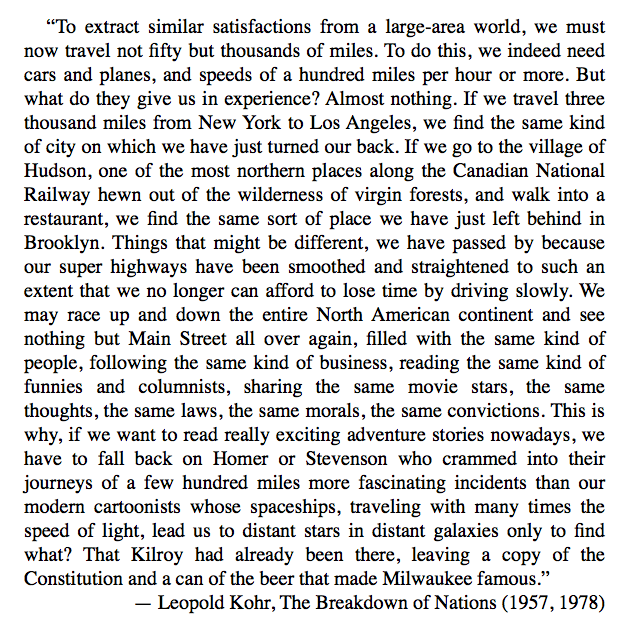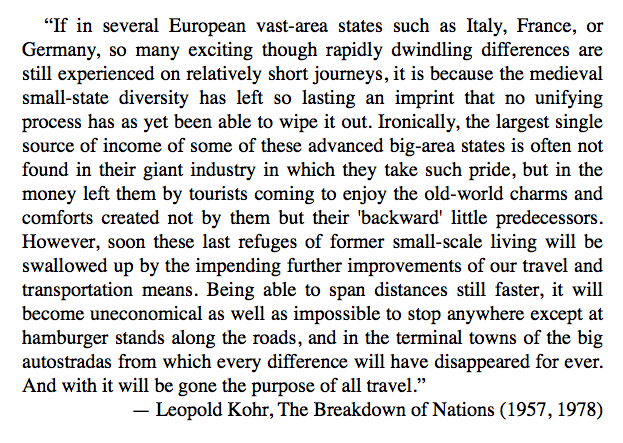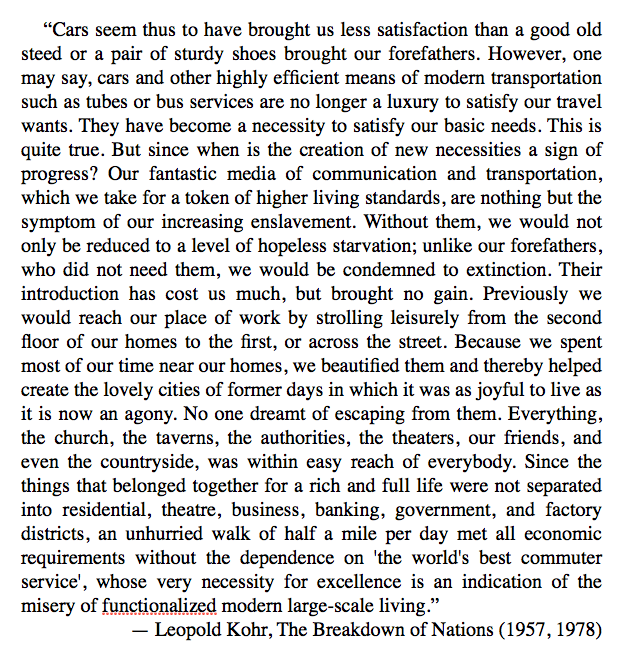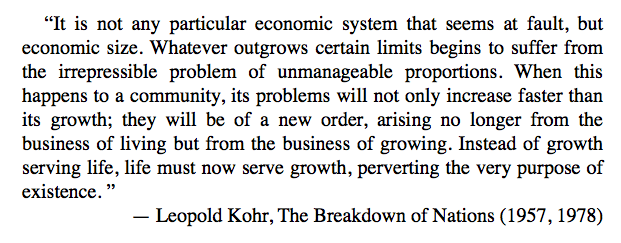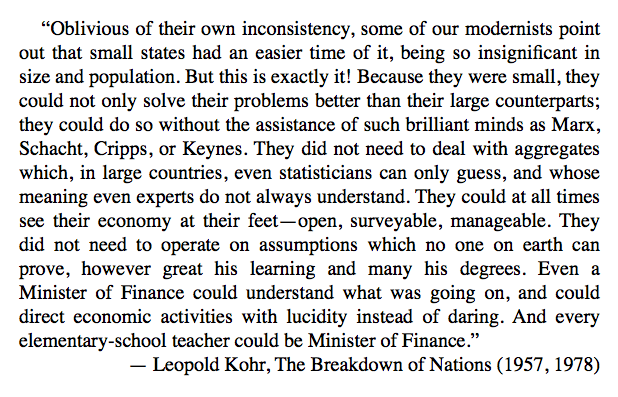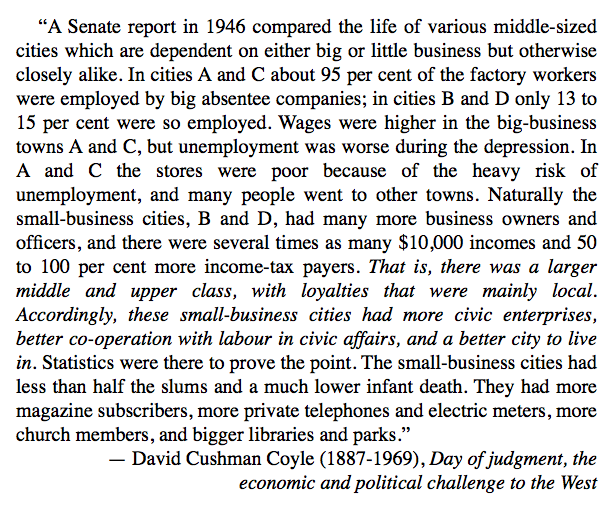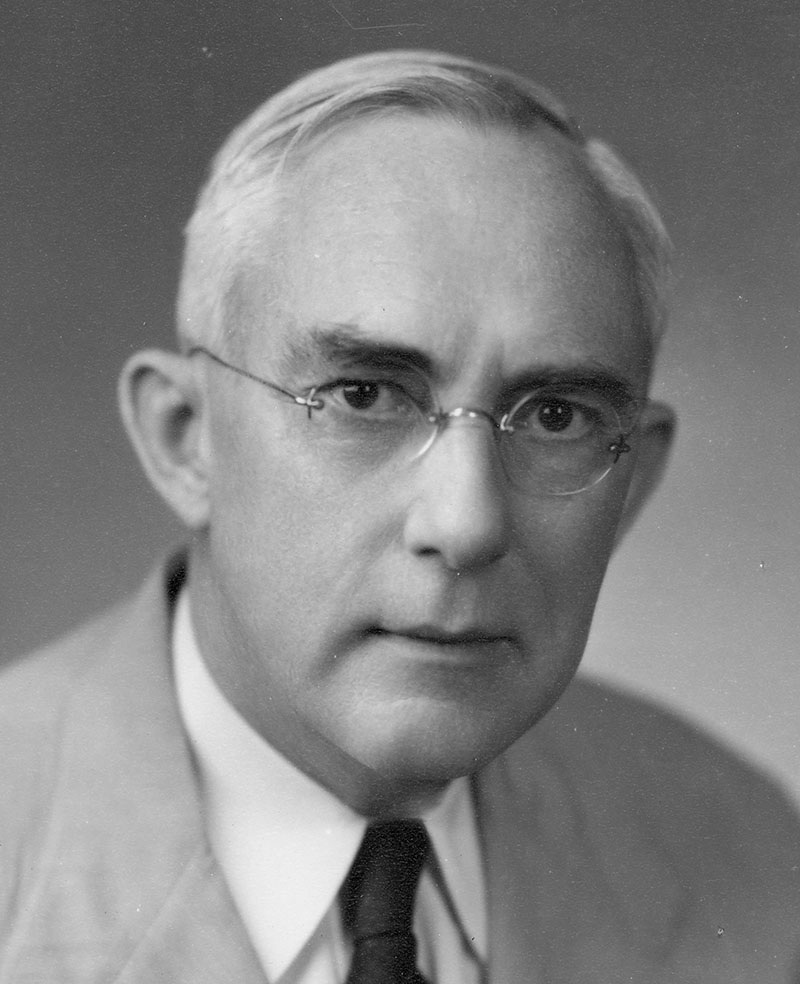Re-reading Leopold Kohr's famous ”The Breakdown of Nation”, on the difference between quality and quantity in terms of travel, the medieval vs. the modern. This is thinking outside the box.
“To extract similar satisfactions from a large-area world, we must now travel not fifty but thousands of miles. To do this, we indeed need cars and planes, and speeds of a hundred miles per hour or more. But what do they give us in experience? Almost nothing.”
— Leopold Kohr
— Leopold Kohr
“If in several European vast-area states so many exciting differences are still experienced on relatively short journeys, it is because the medieval small-state diversity has left so lasting an imprint that no unifying process has as yet been able to wipe it out.”
— Leopold Kohr
— Leopold Kohr
From quality vs. quantity Kohr moves on to how the token of a higher standard of living has only served ot enslave us. Communication and transport which we today could not live without.
Here is a good article from 2015 on the the problem of bigness and on Kohr by the always interesting Paul Kingsnorth. https://www.theguardian.com/commentisfree/2011/sep/25/crisis-bigness-leopold-kohr
Take the metropolitan area of Tokyo for example, the biggest city on Earth and maybe also the richest. Without its meticulously crafted, absurdly complex system of public transport I doubt even 10% of people get to work on any given day. So what use are all these riches?
Smallness has many obvious advantages. Every day on Twitter I come across people furious that they have absolutely no influence on what goes in their countries, their cities or even in their own neighborhoods, not even in front of their own doorsteps, where society dumps much...

 Read on Twitter
Read on Twitter